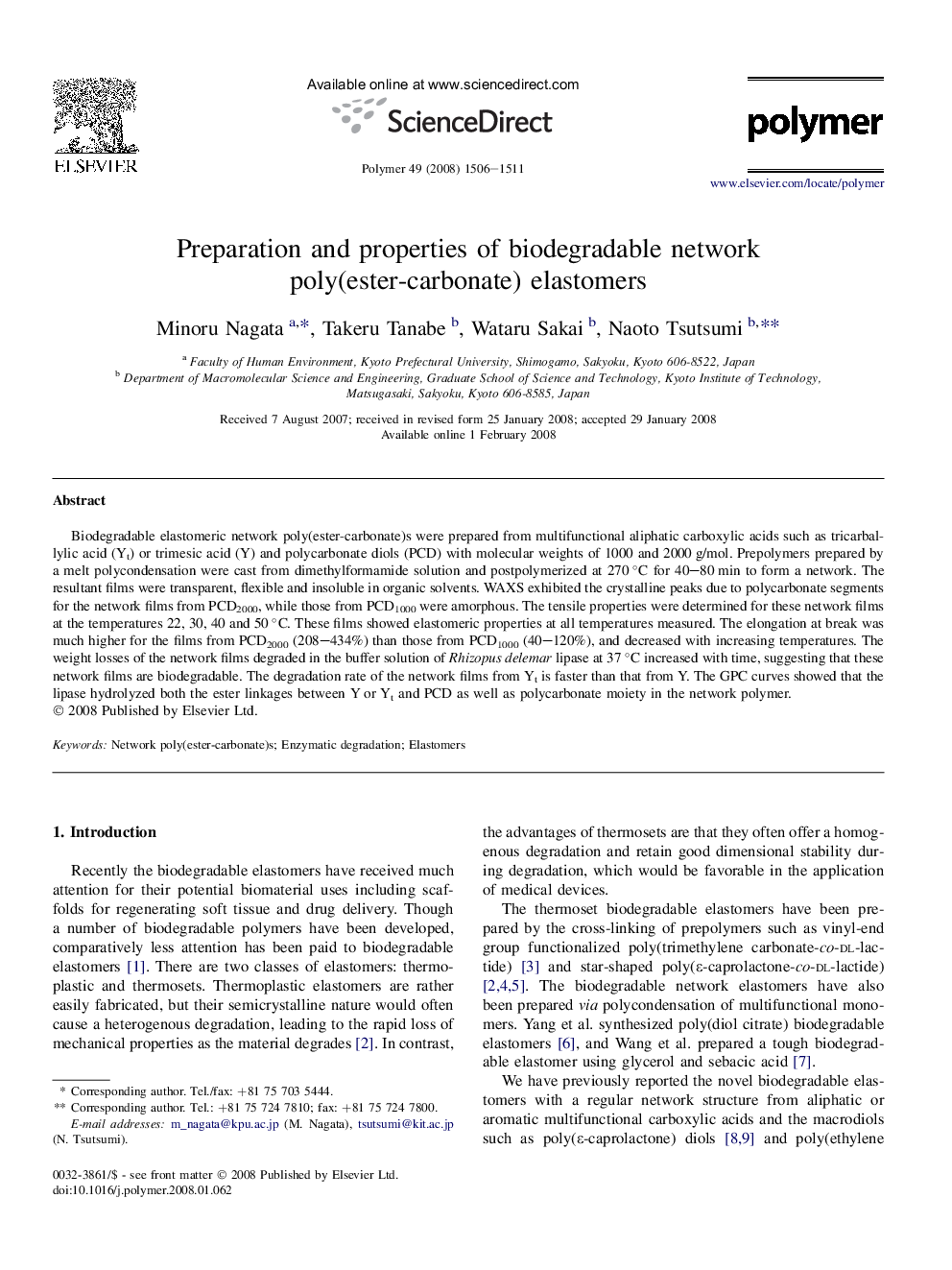| Article ID | Journal | Published Year | Pages | File Type |
|---|---|---|---|---|
| 5187891 | Polymer | 2008 | 6 Pages |
Biodegradable elastomeric network poly(ester-carbonate)s were prepared from multifunctional aliphatic carboxylic acids such as tricarballylic acid (Yt) or trimesic acid (Y) and polycarbonate diols (PCD) with molecular weights of 1000 and 2000 g/mol. Prepolymers prepared by a melt polycondensation were cast from dimethylformamide solution and postpolymerized at 270 °C for 40-80 min to form a network. The resultant films were transparent, flexible and insoluble in organic solvents. WAXS exhibited the crystalline peaks due to polycarbonate segments for the network films from PCD2000, while those from PCD1000 were amorphous. The tensile properties were determined for these network films at the temperatures 22, 30, 40 and 50 °C. These films showed elastomeric properties at all temperatures measured. The elongation at break was much higher for the films from PCD2000 (208-434%) than those from PCD1000 (40-120%), and decreased with increasing temperatures. The weight losses of the network films degraded in the buffer solution of Rhizopus delemar lipase at 37 °C increased with time, suggesting that these network films are biodegradable. The degradation rate of the network films from Yt is faster than that from Y. The GPC curves showed that the lipase hydrolyzed both the ester linkages between Y or Yt and PCD as well as polycarbonate moiety in the network polymer.
